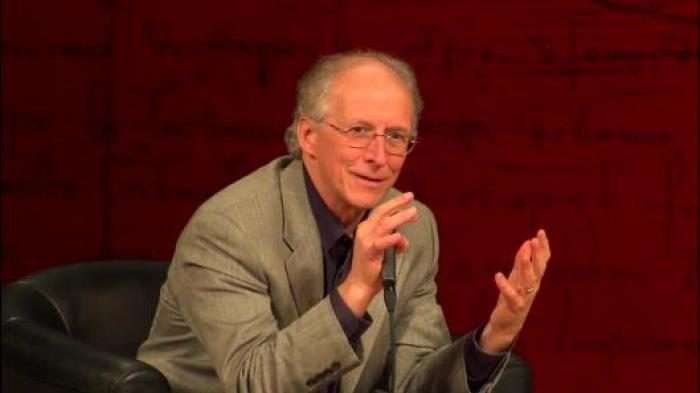John Piper on Whether Kim Davis Is Right to Refuse Marriage Licenses

Many Christians wrote to John Piper to ask whether Kim Davis, the Kentucky clerk, did the right thing by refusing to issue marriage licenses to same-sex couples in defiance of the U.S. Supreme Court ruling, for which she spent six days in jail. The theologian responded to the question in the "Ask Pastor John" podcast.
"I think she is right in rejecting so-called same sex marriage as contrary to God's design for what marriage is," said Piper, who served as pastor of Bethlehem Baptist Church, Minneapolis, Minnesota, for 33 years.
"And she is right in assessing this departure from God's will as massive, not marginal, and as personally and culturally deadly, not trivial. And therefore it's not something that you can just go along with as if that were a loving thing to do," Piper added.
A judge had ordered Davis to issue marriage licenses, but she cited "God's authority" as the reason to defy the Supreme Court ruling legalizing gay marriage across the nation in June. The judge ordered her arrest, and warned that any other clerk who refuses to issue licenses could also be found in contempt of court.
"God's moral law conflicts with my job duties," Davis told the judge before her arrest. "You can't be separated from something that's in your heart and your soul."
Referring to 1 Corinthians 6:9–10, Piper added that calling same-sex marriage "legal" in no way removes the "capital punishment that will follow in eternity. Therefore, this judgment of the Supreme Court is massively evil and deadly for persons."
Piper went on to say that Davis is "morally right and probably legally right."
"She is morally right because God has given civil authorities to the world to reward the right and punish the evil," the theologian explained, quoting 1 Peter 2:13–14 and Romans 13:1, 3–4. "So when those authorities promote evil and punish good, those authorities may rightly be disobeyed for the sake of obeying God."
Gay marriage is not marriage, Piper underlined. "If she blesses with her authority and her signature a union which leads to destruction, she endorses and participates in that destruction. Encouraging homosexual behavior is the participation in someone's destruction. I think she is right not to do that."
There are two angles to look at whether Davis was legally bound to resign instead of obstructing the licensing process, Piper said.
"One is to observe that perhaps she is not the one breaking the law, but that that Supreme Court broke the law by their ludicrous claim that they found in the Constitution a right to the non-existent illusion called 'same sex marriage,' Piper explained. "The other angle that suggests Kim Davis was not only morally right, but, perhaps, legally right, is that she was drawing the line — the hill to die on — not at whether so-called 'gay marriage' could be authorized by anyone in Kentucky, but by whether it would have to be authorized by her. The specific issue was whether her name or her official authority as clerk was put on the licenses."
Piper also noted that both the federal Civil Rights Act and Kentucky's Religious Freedom Restoration Act have provisions that mandate an employer to adjust the employee's job requirements to avoid a conflict with conscience.
How to respond to such issues concerning religious freedom is something that Christians must ponder over, Piper suggested, adding that Davis' is "just one prominent case of what will be hundreds in the months and years to come as Christians and others draw a line of conscience beyond which they will not go."





























